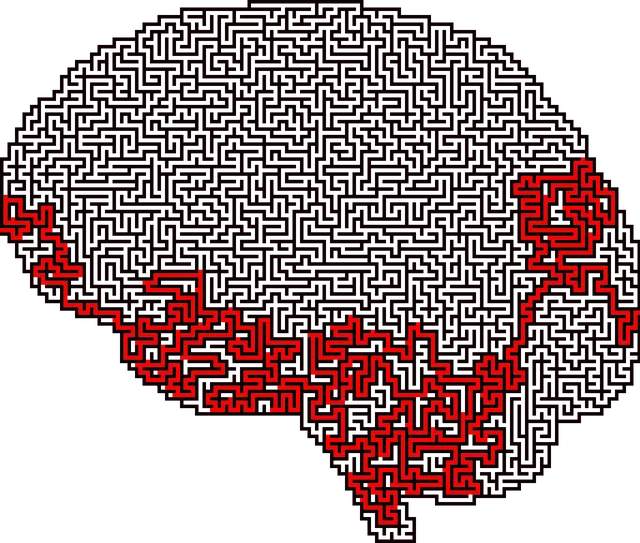The Lakewood Kaiser Permanente mental health department adopts a unique approach integrating Resilience, Flexibility, and Mastery (RFM) principles into care models to empower individuals with tools to navigate life's challenges effectively. They offer tailored resilience-building exercises for diverse populations, combining evidence-based practices like mindfulness and cognitive reframing in a supportive environment. Success is measured through key metrics including participant numbers, engagement levels, and self-reported emotional well-being improvements, ensuring the program remains relevant and effective.
“Explore the transformative power of RFM (Resilience, Flexibility, and Mastery) in mental health care through this insightful article. We delve into its significance, drawing from the innovative practices of the Lakewood Kaiser Permanente Mental Health Department, which has pioneered RFM-based programs. Learn their step-by-step approach to implementing resilience-building exercises, along with strategies for measuring success. Discover how these methods have improved patient outcomes, offering a promising path to enhanced mental well-being.”
- Understanding RFM and its Significance in Mental Health Care
- The Lakewood Kaiser Permanente Mental Health Department's Approach
- Implementing Resilience-Building Exercises: A Step-by-Step Guide
- Measuring Success and Continuous Improvement Strategies
Understanding RFM and its Significance in Mental Health Care

At Lakewood Kaiser Permanente mental health department, recognizing the profound impact of resilience on overall well-being, they have integrated Resilience, Flexibility, and Mastery (RFM) principles into their care framework. RFM is a powerful tool that focuses on fostering adaptability and emotional agility in individuals facing life’s challenges, which is crucial for navigating mental health issues effectively. This approach goes beyond traditional therapy by equipping patients with practical self-care practices tailored to enhance resilience.
By incorporating RFM exercises, the department aims to empower individuals with better stress management techniques and conflict resolution skills. These self-care practices encourage a proactive mindset, enabling people to confront stressors and conflicts as opportunities for growth rather than obstacles. The strategy is to build mental fortitude so that patients can lead more fulfilling lives, demonstrating the significance of RFM in holistic mental health care at Lakewood Kaiser Permanente.
The Lakewood Kaiser Permanente Mental Health Department's Approach

The Lakewood Kaiser Permanente Mental Health Department takes a holistic approach to resilience building, recognizing that mental wellness is intricately linked to overall health and well-being. They have developed innovative programs focused on cultivating positive thinking and enhancing coping mechanisms, targeting both individuals and communities. Their strategy involves a multi-faceted approach, combining evidence-based practices with creative initiatives.
One key initiative is the implementation of resilience-building exercises tailored to diverse populations. These sessions aim to empower participants with skills to navigate life’s challenges. Through a range of activities, from mindfulness techniques to cognitive reframing, the department fosters an environment that encourages emotional agility and strengthens mental defenses. The Lakewood Kaiser Permanente Mental Health Department’s commitment to this unique program reflects their dedication to transforming lives and creating sustainable strategies for mental wellness coaching.
Implementing Resilience-Building Exercises: A Step-by-Step Guide

Implementing Resilience-Building Exercises: A Step-by-Step Guide
At Lakewood Kaiser Permanente mental health department, we understand that building resilience is a crucial aspect of fostering mental wellness. Our Mental Wellness Podcast Series Production offers a practical approach to integrating these exercises into daily routines. Start by identifying specific areas where resilience can be strengthened; whether it’s managing stress, regulating emotions, or coping with challenges. Once these areas are pinpointed, create structured activities tailored to address them. Incorporate techniques like mindfulness meditation, positive affirmations, and cognitive reframing to enhance emotional intelligence and facilitate emotional healing processes.
Ensure a supportive environment where participants feel comfortable expressing their feelings and sharing experiences. Facilitate group discussions or one-on-one sessions to encourage open communication. Over time, as individuals become more adept at navigating difficult situations, they’ll develop a stronger sense of resilience, which can be further strengthened through regular practice and application in real-life scenarios. Remember, building resilience is an ongoing process that requires dedication and commitment.
Measuring Success and Continuous Improvement Strategies

Measuring success is a vital step in evaluating the effectiveness of RFM and resilience-building exercises within the Lakewood Kaiser Permanente mental health department. The number of participants, their engagement levels, and self-reported improvements in emotional well-being are primary metrics to consider. Tools like pre- and post-program assessments can gauge changes in symptoms related to anxiety relief and self-esteem improvement. Additionally, qualitative feedback through surveys or interviews provides deeper insights into the impact of these exercises on individuals’ lives.
Continuous improvement strategies should be implemented based on these measurements. Identifying areas where participants benefit the most and those that require adjustments ensures the program remains relevant and effective. Regular review and refinement enable the mental health department to adapt their approach, incorporating new empathy-building strategies or tailoring existing ones to better serve the diverse needs of their client base.
The implementation of RFM and resilience-building exercises, as demonstrated by the Lakewood Kaiser Permanente Mental Health Department, offers a compelling approach to enhancing mental well-being. By combining evidence-based strategies with a structured guide, this program has shown significant success in fostering resilience among participants. Adopting these practices can revolutionize mental health care, enabling professionals to empower individuals and communities to navigate life’s challenges more effectively. This article’s step-by-step guide and measurement strategies provide a roadmap for organizations aiming to integrate RFM into their services, potentially leading to improved outcomes and enhanced quality of life for those seeking support.






